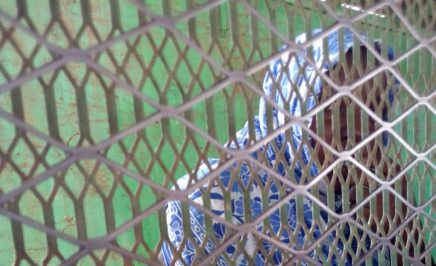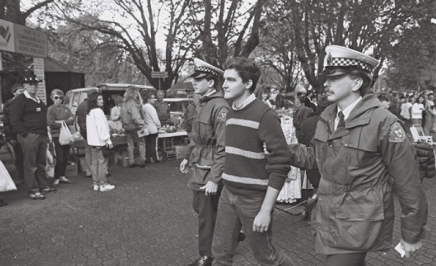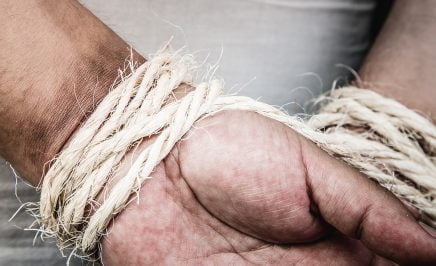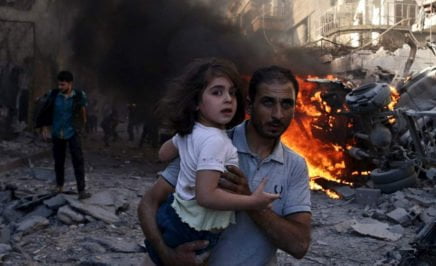In the lead up to the five-year anniversary of the start of the violent conflict in Syria, we spoke to Syrian human rights activist Bassam al-Ahmad about his experiences.
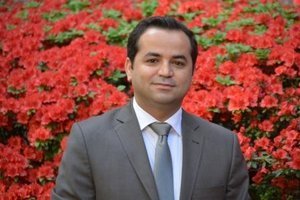
Arrested
I had been in my new job for fewer than six weeks when they came in and arrested everyone in the office and took us away.
It was 16 February 2012, and I had just started work at the Violations Documentation Centre (VDC) in Damascus – an independent not-for-profit organisation that records human rights abuses in Syria. I wasn’t blind to the dangers of the kind of work I was doing but I was young and naive and somehow I didn’t think it would happen to us. I thought I was untouchable.
I was known to the authorities already. When I moved to Damascus as a student, I started organising peaceful events at university like equal rights marches and workshops to discuss the ideas of Gandhi and Nelson Mandela. This didn’t go down very well with the authorities and it didn’t take them long to find me as I had used my real name on the posters. So the secret police already had a file on me.
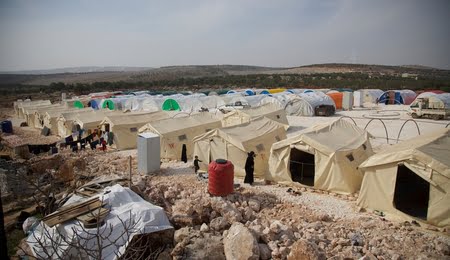
Torture and overcrowding
At VDC, I was working with people I’d known for a long time – it was safer to only work with people you knew because the intelligence services had a habit of trying to infiltrate human rights organisations. We thought we were safe because of this. We were wrong.
For the first few days of our arrest, I thought we would be ok.
They took my whole office – nine men and six women – to an air base and we were questioned by air force intelligence but there was no torture. They kept us there for 25 days.
As the days dragged on we started to get frustrated – why were they keeping us so long without releasing us or putting us on trial? We knew our rights! We told them we were going to go on hunger strike if they didn’t let us out and that annoyed them so they handed us over to the 4th Armoured Division, a military unit headed by President Assad’s brother.
I was put in a small room with about 80 other people. It was so crowded, we had to sit down in shifts while the others stood up because there wasn’t enough room for us to all sit down on the floor at the same time.
Every now and then they would take a few people away to be tortured. When they came back – if they came back – there wasn’t even enough space for them to lie on the floor.
I was in there for 33 days.
Forced to flee
One day, out of the blue, they transferred me to a military court for trial and then I was sent to an ordinary prison for 20 days, where I had access to food, clean clothes and medicine. You know you’ve been in a bad place when an ordinary prison in Syria looks good.
When I was released, alongside two of my colleagues, we had been forcibly detained for 86 days. It turned out all our lawyer friends had been working to track us down the whole time we were in detention and they got us out on bail by telling the authorities we were not a flight risk and we would attend trial in Damascus.
I actually did attend trial twice until my family made me see sense: that there would be no good outcome for me, I would never get a fair trial. I fled to Antakya, a city in Turkey near the border with Syria.
I wasn’t a bad person – I wasn’t fighting for IS or the Assad regime – but they took me away anyway. For 86 days, my family had no idea where I was or whether I was dead or alive. Sometimes I didn’t know it myself.
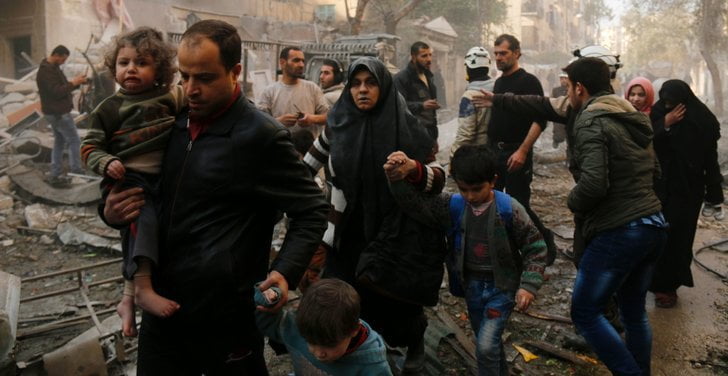
Ordinary people fighting for their rights
I want to tell people in Australia about what is happening in Syria – to tell you the stories we document every single day at the VDC.
The people in these stories are just ordinary people – they were merely demanding dignity and fighting for their human rights – they just wanted the same things that everyone else wants the world over: freedom and the right to lead dignified lives free of fear. And for that, they were disappeared.
VDC is working closely with Amnesty International to record the human rights violations happening in Syria and to publicise them around the world. Just knowing that you know about what is happening to these people gives them hope and helps them stay strong.
It has been nearly five years since the war started in Syria and we need your help to help them.
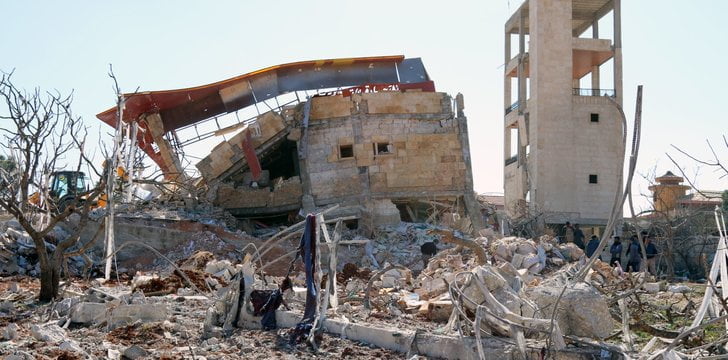
Bassam al-Ahmad is the Director of Research for the Syrian Violations Documentation Centre (VDC). Amnesty International has facilitated Bassam al-Ahmad’s visit to Australia to publicise the work VDC does and the atrocities being committed in Syria.
First published by The Drum.

